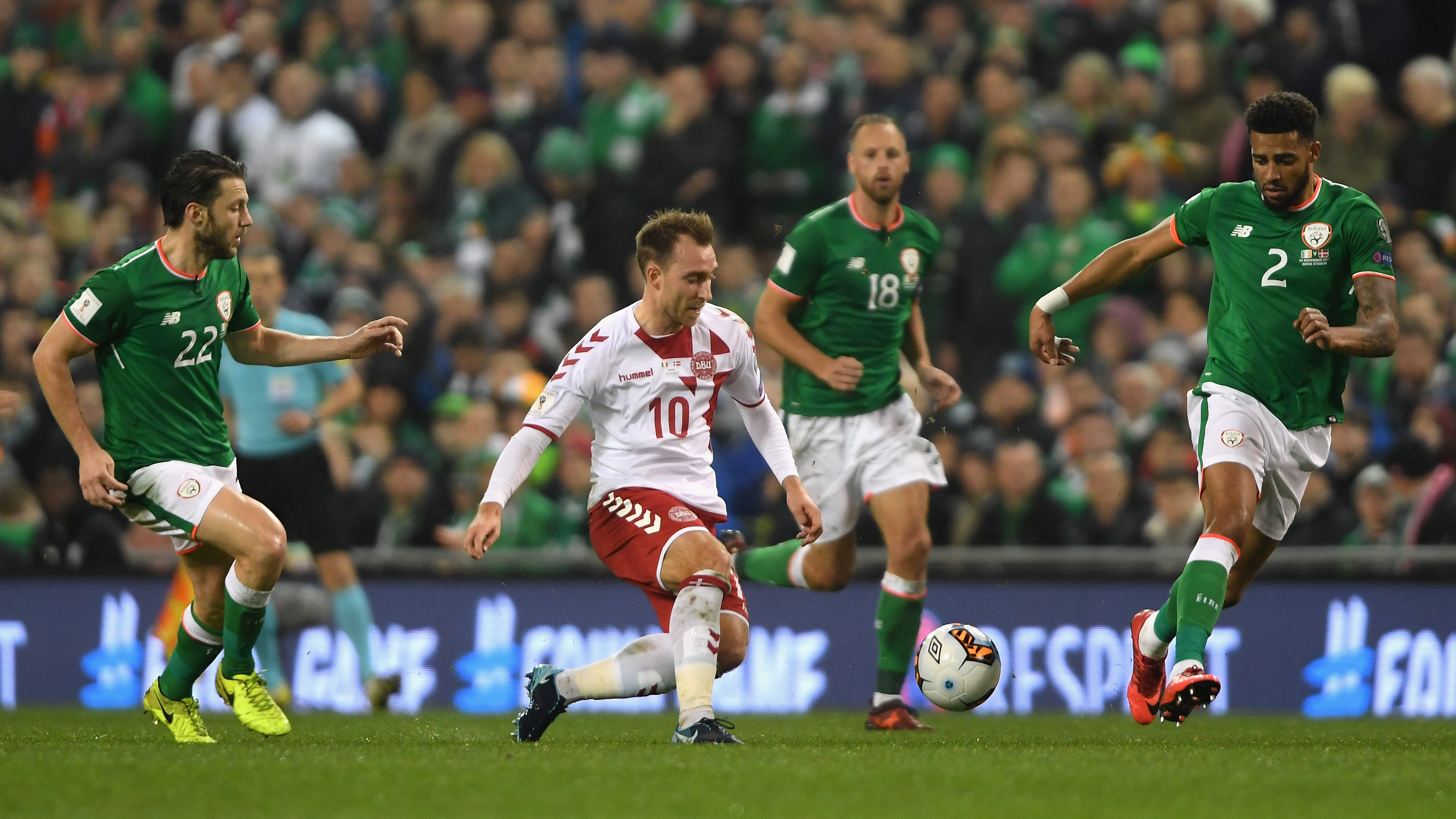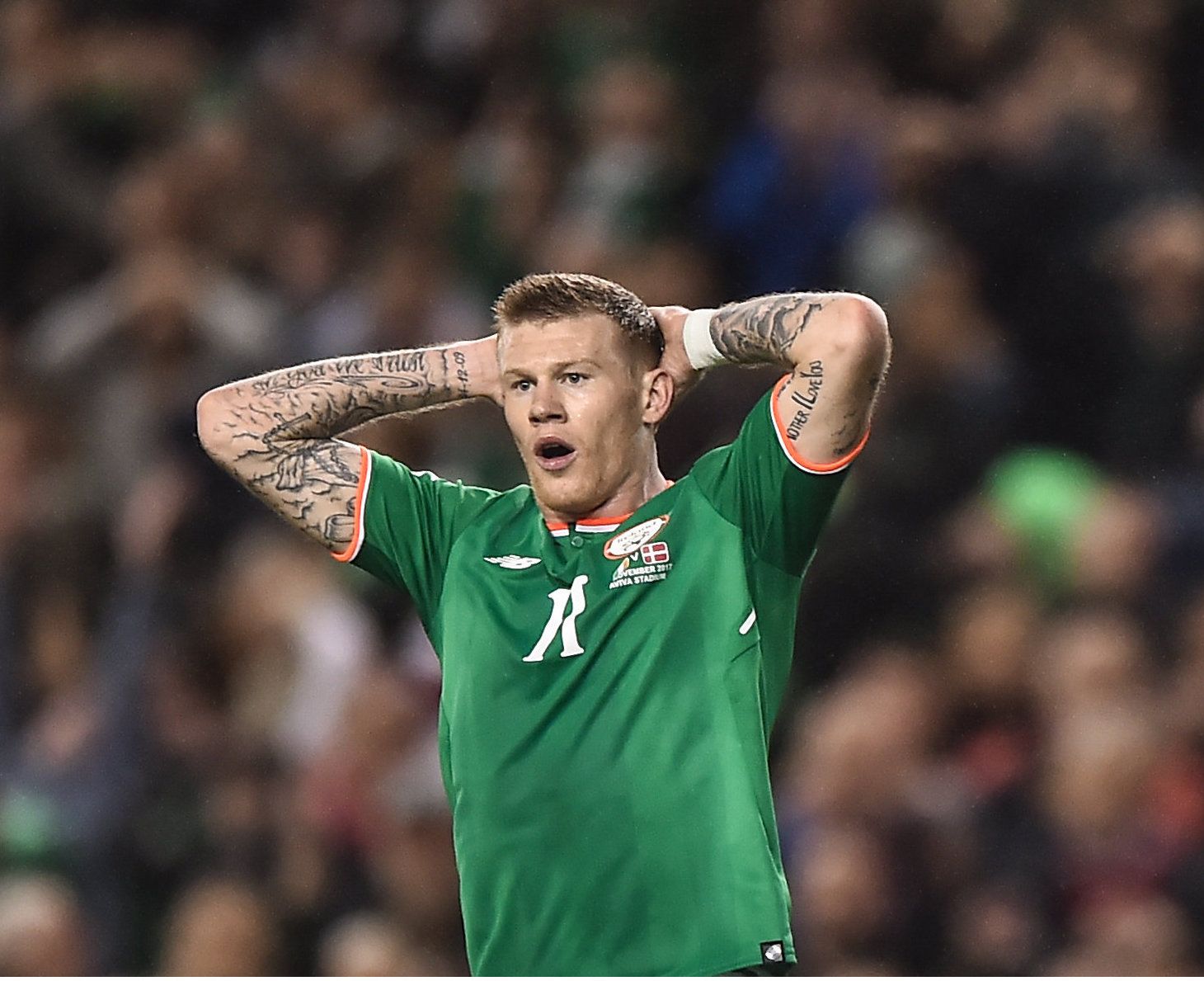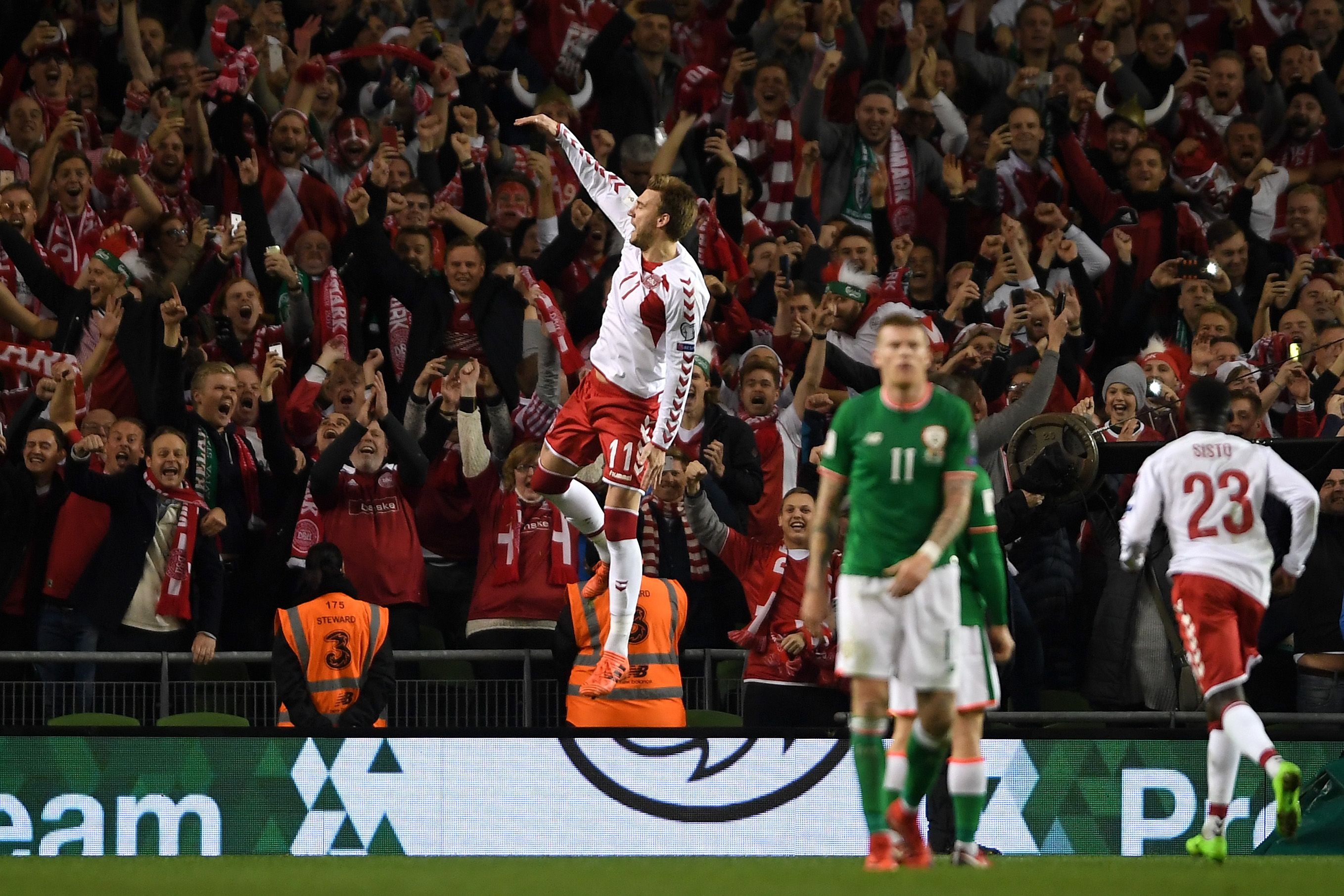

Share
14th November 2017
10:03pm GMT

They appeared to be entirely comfortable with the early lead, a condition with which no Ireland team - or no Irish person - is every truly at ease. On top of that, they were creating chances and playing football in a way this team rarely does.
A few minutes later, that all looked like hubris. Denmark scored twice in three minutes and everything changed. The scoreline was the most fundamental alteration, but Ireland - who had seemed to be so resolute - ended the half bickering and with players reluctant to demand the ball or, more precisely, demand that it be launched in their general direction.
At half-time, Martin O’Neill attempted to jolt the players into action by taking off Harry Arter and David Meyler and replacing them with Wes Hoolahan and Aiden McGeady.
Hoolahan was needed, but sending McGeady into a situation which required some authority and composure was baffling. Perhaps O’Neill felt that Ireland didn’t have anyone with authority and composure so instead he would go all in on anarchy.
Ireland, as O’Neill likes to say, wouldn’t die wondering, but in the second half they might have died wondering what formation they were supposed to be playing.

Christian Eriksen’s hat-trick tore Ireland apart. He demonstrated the difference one outstanding player can make and he highlighted that Ireland do not have that player.
Under Martin O’Neill, Ireland have tried to replace talent with cussedness but here they reached their limits with that approach.
The manager, too, who deserves credit for the victories Ireland picked up on their way to this play-off contributed to the downfall on Tuesday night.
If Ireland’s players had fallen apart thanks to the two quick goals, the manager didn’t help at half time.
It was hard to understand what system Ireland were playing and Eriksen stepped into the chaos and dismantled Ireland.
While Meyler and Arter were gone, Robbie Brady and Jeff Hendrick survived, although it was hard to fully comprehend what they were doing.
James McClean has become Ireland’s most important player under O’Neill, but he too needs the restrictions of a system, not to be the untramelled focal point for anarchy that he became in the second half.

Denmark’s first half goals had reduced Ireland to their limitations. They had come from sloppy play by Harry Arter, Cyrus Christis and Stephen Ward. When Christian Eriksen swept in Denmark’s second, Ireland knew whatever happened next needed to be extraordinary.
Instead it was a humiliating experience, a night which drove home the reality about the inadequacies of Ireland’s team and the flaws in the approach to fixing them.
There had been a start which suggested something else and when Shane Duffy gave Ireland the lead, it seemed as if this would be a game in the style of some of O’Neill’s best victories.
Duffy’s goal fell into that category - a long ball, a miskick and a header which drove the country wild.
Then Ireland played some football with Daryl Murphy and McClean going close.
McClean shot wide at the end of a sweeping Irish move which began with a Randolph miskick. It was McClean's best moment of the night
Denmark looked stunned but it was soon all going to change. Denmark’s goals seemed to emphasise the disintegration, each one adding a layer of ineptitude to the result, although the damage was done in the first half due to a series of mistakes.

O’Neill went into this game with many of us praising his ability to say the right thing in the dressing room. At half time, he got it wrong and Ireland’s collapse became worse.
It was as painful a half as many of the low points under Giovanni Trapattoni or Steve Staunton, although O’Neill will point out that this was a World Cup play-off.
It didn’t matter. Denmark were ordinary but Ireland’s ordinariness could always go to another level.
O’Neill has embraced an anti-style which has emphasised the fighting qualities of the Ireland squad but it descended into raggedness here, as Ireland became a side without direction or belief.
In 1985, Ireland lost 4-1 to Denmark in a World Cup qualifier which brought the Eoin Hand era to an end and signalled the need for change. This was an equally humiliating defeat but Ireland keep muddling along.
O’Neill has agreed a new contract and many felt before Tuesday night that he deserved it. Maybe he still does, but this was the kind of defeat that leaves a psychic impact on a side. Ireland went into the game believing in their fighting qualities, they ended it looked dazed, confused and wondering where they go from here.
Explore more on these topics: